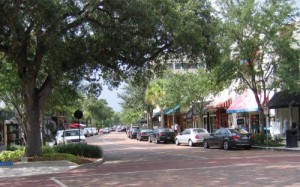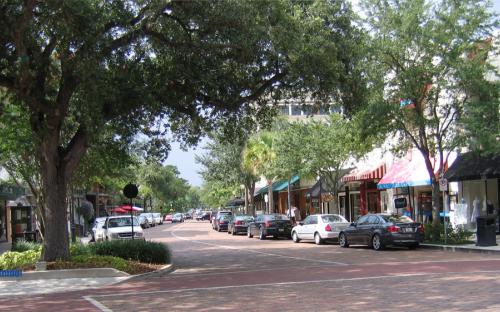 On January 24 students and faculty marched up Park Avenue in demonstration for the campaign #BlackLivesMatter to provide solidarity to Muslims abroad. This protest was organized by Jamaica Reddick ’15 to shed light on the rampant anti-black sentiment and modern police brutality as well as the Islamophobia Muslims are subjected to.
On January 24 students and faculty marched up Park Avenue in demonstration for the campaign #BlackLivesMatter to provide solidarity to Muslims abroad. This protest was organized by Jamaica Reddick ’15 to shed light on the rampant anti-black sentiment and modern police brutality as well as the Islamophobia Muslims are subjected to.
As we marched up Park Avenue, we chanted different things such as: “Black Lives Matter,” “Muslim Lives Matter” and “No Justice No Peace.” It was not only communal and healing but an example of how our community can expand beyond the ivory tower that is Rollins.
When asked why she decided to organize this event, Reddick replied “I chose a protest, because not only is it important to let people see that the #BlackLivesMatter movement isn’t dying out, but that we stand in solidarity with oppressed peoples worldwide.”
For me, there were two pressing questions after the protest: what does solidarity look like? And what is intersectionality?
Solidarity varies from person to person. For me personally, I equate solidarity with struggle. Ally-ship says I want to help you, but often that help falls into a “savior complex.” Rather, to struggle with someone is to feel pain with them, to cry with them, to rejoice with them while also recognizing that their experience is uniquely theirs and as valid as your own. This is what I try to emulate with my solidarity and this is what I hope for when someone decides to participate in solidarity with me.
Intersectionality states that every identity you have exists in connection with your other identities. For example, my queer identity connects to my male identity, my racial identity, economic status, etc. Without recognizing these connections I cannot bring my authentic self into a space, and I am unable to recognize my unearned privileges and oppressions that shape my life experience.
When approaching activism one must look at issues through a holistic perspective. If you attack one part of the problem you are fighting the symptom, but when you attack the problem holistically you are dismantling the root causes of oppression and privilege.
Reddick organized this march because the open Islamophobia, xenophobia and racism surrounding the Charlie Hebdo attack upset her.
“If Charlie Hebdo can so freely express their freedom of speech that violently dehumanizes entire groups of people, then I thought I’d use my freedom of speech to stand up for them. As an advocate for Muslims, I have to use my privilege to say something,” Reddick said.
At the march, longtime Hannibal Square resident LaShanna Tyson, community organizer with Faith in Florida and leader of the campaign to “Let My People Vote,” spoke on issues of mass incarceration, prison privatization, immigration and the gentrification of Winter Park. While these issues are rarely connected, LaShanna’s experiences did so fluidly, which clearly illustrates her understanding of both intersectionality and solidarity. She spoke on her identities as a formerly incarcerated individual, a woman, a mother, a black person and a Winter Park as they have shaped her worldview.
Intersectionality and solidarity are what shaped the march on Park Ave. These factors shape the speech I made at the event. They shape why I have radical politics and they shape how I express myself. As you move forward in your lives I implore you to look at your life and your experiences with an intersectional perspective. How does each facet of you shape and interact with other facets of you? How can you move through spaces more authentically? I also implore you to ask yourself what solidarity means to you and to seek to create solidarity with seemingly vastly different people. Can you struggle with someone and what does that mean? I speak because I have to. I march because I have to. I love and struggle with people because I want to.







Be First to Comment